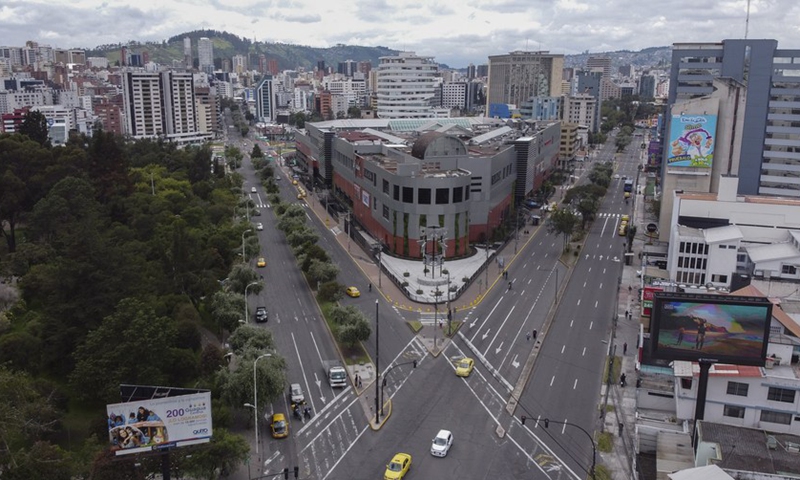
Photo taken on March 15, 2020 shows a few cars running on streets in Quito, Ecuador. (Photo by Santiago Armas/Xinhua)
Former banker Guillermo Lasso won Ecuador's presidential election on Sunday after his opponent Andres Arauz conceded.
Conservative Lasso declared himself president-elect and accepted the "challenge" of changing Ecuador's "destiny."
With 93 percent of votes counted, Lasso held a lead of almost 5 percentage points over economist Arauz.
"On May 24, we will assume with responsibility the challenge of changing our country's destiny and achieving for all Ecuador the opportunities and prosperity we all yearn for," said Lasso.
Economist Arauz, who is best known as the protege of former president Rafael Correa, was magnanimous despite earlier claiming victory following a tight exit poll.
"I congratulate him on his electoral triumph today and I will show him our democratic convictions," said Arauz.
Lasso had 52.51 percent of the vote compared to Arauz's 47.49 percent with 93.14 percent of votes counted, the National Electoral Council said.
Seasoned politician Lasso, 65, has twice before finished second in presidential votes.
Earlier, television stations Ecuavisa and Teleamazonas published the results of the Cedatos exit poll that gave Lasso almost a 6.5 percentage point lead over Arauz.
But the stations also said the Clima Social pollsters had indicated the result was a technical draw and thus decided not to publish their figures.
Arauz's campaign team used that poll to claim victory by 1.6 percentage points.
Voting is obligatory, and opinion polls had the rivals neck and neck heading into the election for oil-rich Ecuador's 13.1 million registered voters to pick a successor to Lenin Moreno.
The campaign in the South American country had been dominated by an economic crisis aggravated by the COVID-19 pandemic.
Arauz, 36, is virtually unknown but topped February's first round of voting on the back of support from Correa, who led the country from 2007-17.
He didn't vote on Sunday because he is still registered in Mexico, where he was studying for a doctorate before deciding to run in the election.

